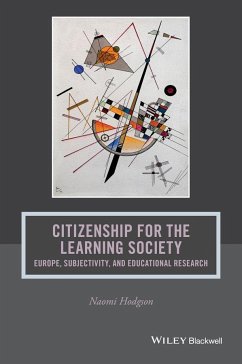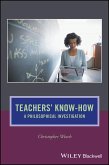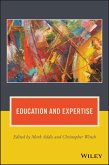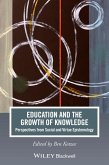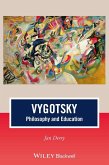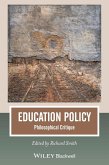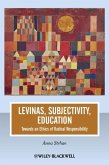Within Citizenship for the Learning Society, the governance of the learning citizen is mapped in relation to European educational and cultural policy. Prevalent notions of voice and narrative - in policy and in educational research - are analysed in relation to Europe's history.
_ The text is concerned with the way in which 'European citizenship' is understood in current policy, the way in which the term 'citizenship' operates, and how learning is central to this
_ Analysis combines educational philosophy and theory with anthropological, sociological, and classic philosophical literature
_ Draws on both Continental European (Foucault, Deleuze, Heidegger, Levinas) and American (Cavell, Emerson, Thoreau) philosophy
_ Material is organised in two parts: Part One discusses the discourses and practices of citizenship in the European learning society, in both educational and cultural policy and educational research, from the perspective of governmentality; Part Two providesanalysis of particular aspects of this discourse
Hinweis: Dieser Artikel kann nur an eine deutsche Lieferadresse ausgeliefert werden.
_ The text is concerned with the way in which 'European citizenship' is understood in current policy, the way in which the term 'citizenship' operates, and how learning is central to this
_ Analysis combines educational philosophy and theory with anthropological, sociological, and classic philosophical literature
_ Draws on both Continental European (Foucault, Deleuze, Heidegger, Levinas) and American (Cavell, Emerson, Thoreau) philosophy
_ Material is organised in two parts: Part One discusses the discourses and practices of citizenship in the European learning society, in both educational and cultural policy and educational research, from the perspective of governmentality; Part Two providesanalysis of particular aspects of this discourse
Hinweis: Dieser Artikel kann nur an eine deutsche Lieferadresse ausgeliefert werden.
'What lies behind the recent calls for multicultural citizenship, lifelong learning, and well-being? Is the trend toward voice and narrative in educational research truly liberatory? What does the accountability movement signal about our new relationship to ourselves? I recommend this book for its disturbing answer to these questions and its subtle exploration of an alternative path.'
Chris Higgins, University of Illinois at Urbana-Champaign, USA
Editor, Educational Theory
Author of The Good Life of Teaching: An Ethics of Professional Practice
'In this wide-ranging, searching, and highly original book Naomi Hodgson analyses some of the watchwords of our time: citizenship education, the learning society, well-being, among others. Surely no sensible person can be against these? Yet, as Hodgson shows, they carry with them unexpected implications, particularly for the nature of educational research and the identity of the educational researcher.'
Richard Smith, Durham University, U
Chris Higgins, University of Illinois at Urbana-Champaign, USA
Editor, Educational Theory
Author of The Good Life of Teaching: An Ethics of Professional Practice
'In this wide-ranging, searching, and highly original book Naomi Hodgson analyses some of the watchwords of our time: citizenship education, the learning society, well-being, among others. Surely no sensible person can be against these? Yet, as Hodgson shows, they carry with them unexpected implications, particularly for the nature of educational research and the identity of the educational researcher.'
Richard Smith, Durham University, U

